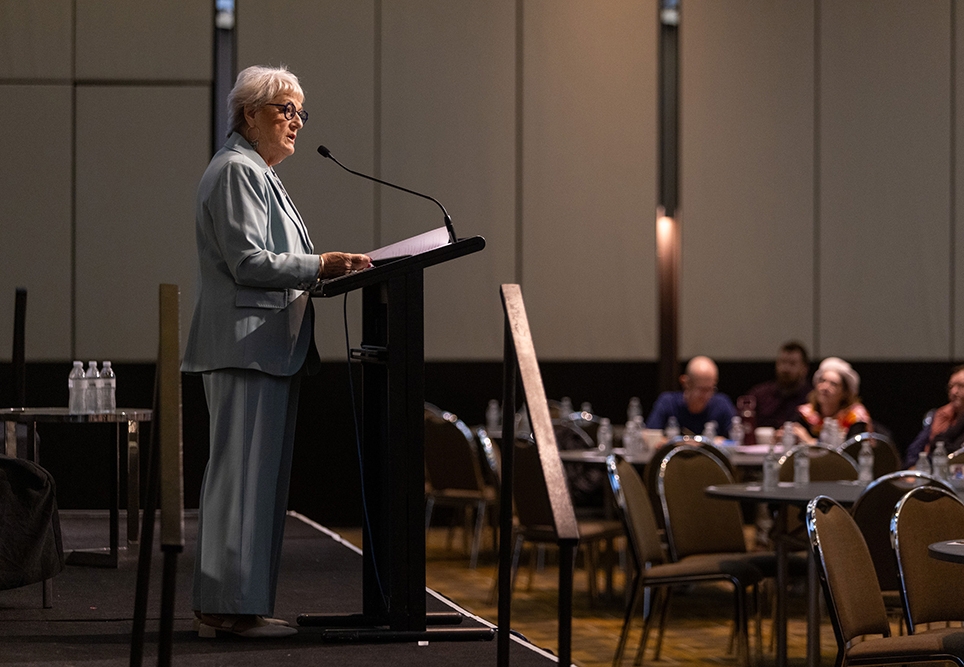
Cairns local and registered nurse Madison Clark first headed remote in March 2021, when she commenced a three-month transition to remote practice in Lockhart River through the Torres and Cape Hospital and Health Service.
“I’ve always being interested in Indigenous health and the struggles Indigenous communities face in regard to chronic illnesses and living in remote locations and not having access to the same kind of healthcare you have in a city,” Madison says.
“I spoke to one of the educators before going up [to Lockhart River] and told her remote nursing was something I really wanted to do, but that I wasn’t fully comfortable being a clinical nurse in remote environment, which is when she offered me the transition program.
“I went there are as a registered nurse and I was supernumerary, so I was very well supported the whole time. The DON and CNs have been really incredible in helping us to get lots of learning opportunities.”

Since Lockhart River, Madison has worked in Bamaga and had just commenced working on Thursday Island at time of writing. The experience and support of surrounding staff and management has continued to impress her.
“The nurse educators are lovely,” she says.
“Before I came to TI, I wanted to do a Triage course and they made that happen. When in Lockhart, they flew me home for a week to complete a number of courses.”
Madison notes that remote health employment isn’t all a bed of roses. She says isolation and missing family events can be challenging, but that her six weeks on, two weeks off arrangement allows her to spend valued time with loved ones.
Even during her stints away, she says “You’d be surprised how quickly the community turns into home, and how easy it is to make friends.
“By the end of it you feel like you’re a part of the community,” she says. “People come in and they know who you are. You go to the shops and people will have a chat to you.
“When I was in Lockhart, everyone was very inviting. I got to go down to the beach with some of the Elder women. They showed me how to make woven baskets out of pandanus leaves – cutting, burning, weaving.

“As we were doing it, they’d be telling us stories about old Lockhart.
“There was one older lady who has a bit of dementia who I fell in love with while I was up there. I think she was gorgeous. She said: ‘you’re doing it wrong’, took the knife from me and started doing it. My heart dropped. She’ll end up in the clinic with her finger off, I thought – but she did it so well. I was so impressed.
“The thing I really enjoy about working with small communities is that you get to see the impact you’re making in someone’s life… In PHCs, clients come in regularly and you see that what you’re teaching them is working; they’re doing it. Then you see them outside of work, too – it’s really nice.”
Madison says her favourite aspects of the role include the scope of practice, the autonomy, and the responsibility of working among a team of skilled nurses in a setting where doctors are not always present, but rather dialled in via TV screen during certain emergencies. She savours the diversity of working alternately in PHC settings and hospitals.
Meanwhile, outside of work hours, she enjoys soaking up the Tip and the Islands.

“I’m looking out of my balcony at the moment,” she says. “There’s a beach and the ocean is dead-flat. It’s hot and humid. It’s an island paradise.
“Since starting on Thursday Island, I’ve become friends with one of my roommates. We all go for a walk down to the beach, to the pub to get dinner, to the coffee shop for a coffee and a donut – there’s so much to do here.
“On my days off in Lockhart, we had access to a car, and me and my friends went down to Chilli Beach before work most mornings. It’s one of the most beautiful beaches I’ve ever been to… In Bamaga, I spent a short holiday camping with friends on the Old Telegraph Track in the four-wheel drive of a nurse who had driven up.”
Since working in the region she has also started fishing for the first time and has already caught a coral trout so large she couldn’t reel it up from the depths herself.

When asked how she sees the next five years panning out, Madison says that for her, it’s remote all the way and that she may look to upskill through post-graduate studies in emergency nursing to prepare for very remote PHCs.
“Since starting with Torres and Cape, what has struck me is how welcoming the community are of having good health workers come in, and how trusting they can be of people as well,” Madison says.
She advises nurses who are eager to pursue remote health to “contact the Torres and Cape Hospital and Health Service and see what positions they have available to suit your skills.”


